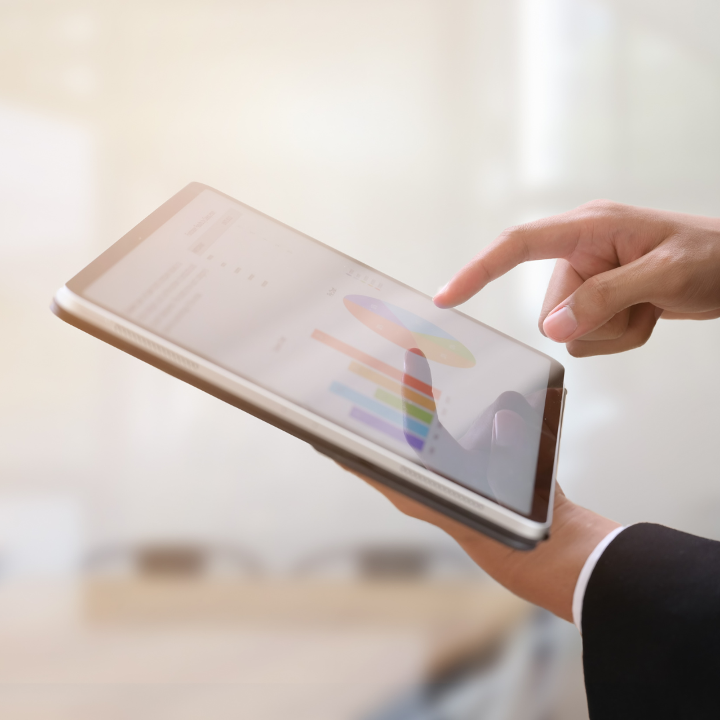E-invoicing will be mandatory in the B2B sector from 2025 - is a significant step towards digitalisation that will also affect the real estate industry. Property companies, especially property managers, should prepare for the new regulations at an early stage in order to ensure a smooth transition and fully utilise the benefits of electronic invoicing. With SMARTBRIX, you are well prepared, as our software already supports e-invoicing and helps you to organise the invoicing process efficiently and in compliance with the law.
What is the e-bill and who is affected?
The e-invoice is a digital version of the classic paper invoice, which is transmitted in a structured and standardised way. Invoice data in a specific format - usually XML - is integrated directly into the recipient's accounting system. E-invoicing will be mandatory in the B2B sector in Germany from 2025. This will not only affect large corporations, but also small and medium-sized enterprises (SMEs) - and therefore also property companies.

What advantages does the e-bill offer?
The switch to e-billing offers numerous advantages from which property companies can benefit:
Reduce complex billing structures
Property managers often have to keep an eye on several cost centres and budgets. Electronic invoicing can help here by reducing this complexity through automatic allocations and analyses.
Automation and error reduction
Thanks to the standardised transmission of invoice data, it can be automatically imported into the accounting system. This reduces manual intervention and minimises data entry errors.
Future-proof through support for all common formats
With SMARTBRIX software, property companies are ideally prepared. Our solution enables you to create, send and archive electronic invoices automatically and in compliance with the law, so that you can easily fulfil the new requirements.
Quick and efficient processing
Electronic invoicing speeds up the entire invoicing process - from issue to payment - and ensures rapid approval and payment.
Legal and future-proof
With e-billing, property companies fulfil all legal requirements and are equipped for future digital developments.

What do property companies need to prepare for?
The introduction of e-billing poses a number of challenges for property companies and property managers in particular. The changeover requires internal processes and IT infrastructure to be adapted. These are the most important steps:
Software and System Integration
Property managers must ensure that their accounting software supports the new e-invoice formats. With SMARTBRIX, the automated creation and legally compliant sending of e-invoices is child's play. Our software has been specially developed for the property industry and enables seamless integration and automation of invoicing.
Training and Awareness
Employees in accounting and administration need to be trained in how to use the new technology. Property managers in particular, who frequently deal with numerous invoices from tradespeople, service providers and tenants, should take advantage of the benefits of digitalisation and adapt their processes accordingly.
Data and security protection
With the electronic transmission of invoices, the issue of data protection and IT security is also increasingly coming into focus. Property companies should therefore ensure that their systems comply with the latest security standards in order to protect sensitive customer data.
Specific challenges for property managers
Property managers usually have a high volume of invoices as they manage numerous buildings and rental properties. Processing invoices for maintenance, operating costs and other services requires precise management. E-invoicing makes it possible to organise these processes more efficiently. However, there are a few points that need to be taken into account:
1. Complex invoice structures
Property managers often have to keep an eye on several cost centres and budgets. Electronic invoicing can help here by reducing this complexity through automatic allocations and analyses.
2. Transparency towards owners and tenants
Complete documentation and transparency of invoices is essential for property managers. With the e-bill, data can be presented in a structured and comprehensible way, which simplifies communication with owners and tenants.
3. Fast response times
Invoices issued for urgent repairs or maintenance work need to be processed quickly. The e-invoice speeds up this process and ensures rapid approval and payment.
The future of the real estate industry is digital
The introduction of e-invoicing takes the digitalisation of the property sector a decisive step forward. For real estate companies and property managers in particular, this means modernising their internal processes and integrating the right systems in order to work efficiently and in compliance with the law.
E-invoicing not only brings new obligations, but also enormous opportunities. Companies that prepare for the changeover at an early stage and implement digital solutions can benefit from cost savings, greater efficiency and a future-proof accounting system. The era of paper-based invoicing is coming to an end - and property companies that adapt in good time will secure a clear competitive advantage.



